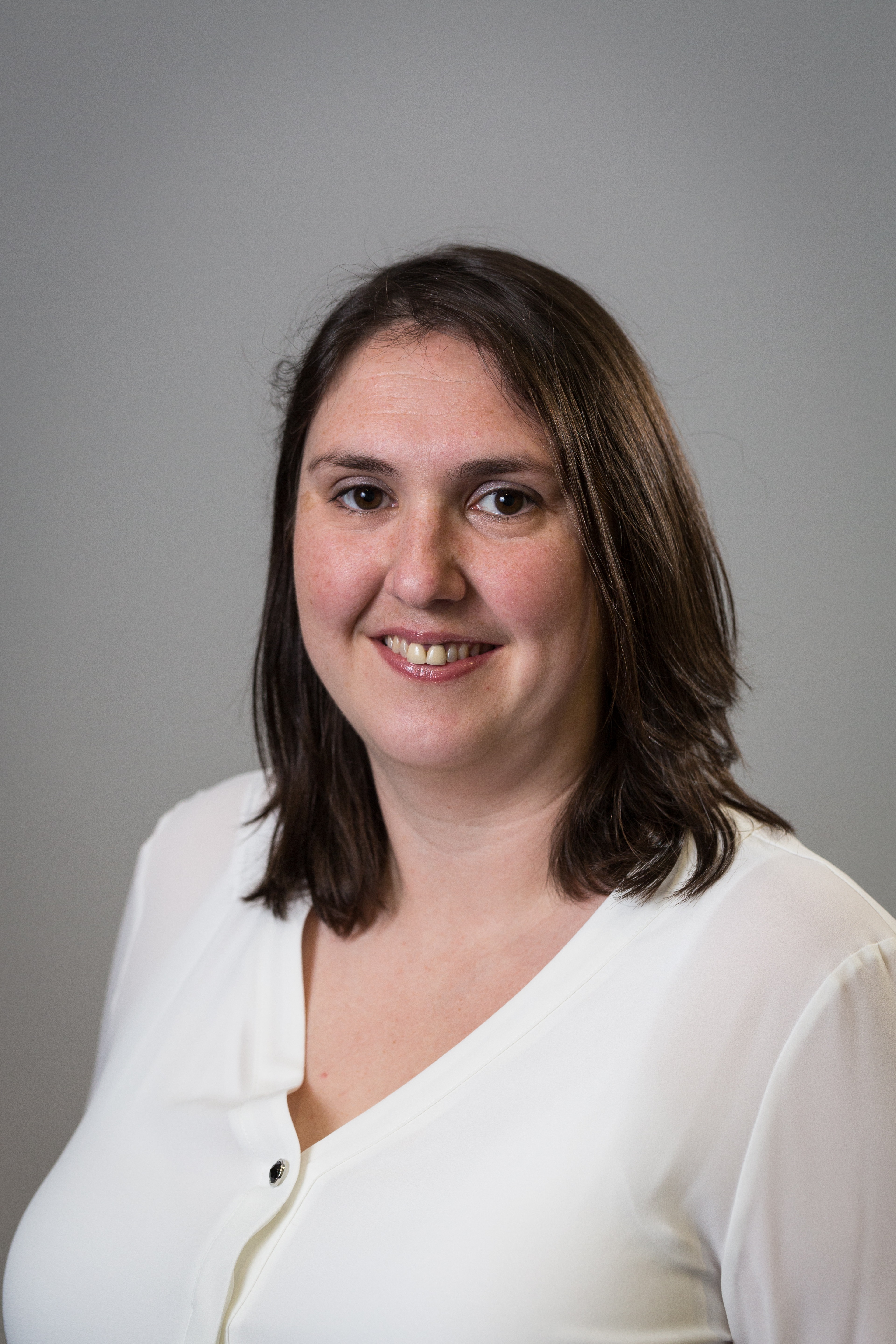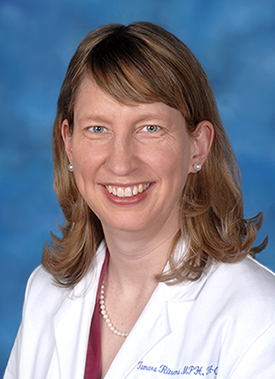British Government Begins National Regulation of Profession; Recognizes Physician Associates
Biggest Winners Will be Patients
October 15, 2019
By Hillel Kuttler

An email that Kate Straughton received in her office on July 18 sent her running cheerfully into the classroom where she teaches in the University of Worcester’s Physician Associate Studies program near Birmingham, England.
“The GMC have agreed. They’re on board,” Straughton told the class. Students cheered the news and within seconds were tweeting about it and going online to learn more.
The United Kingdom’s Department of Health and Social Care (DHSC) had just announced that its General Medical Council would be “regulating” – overseeing the licensing of – physician associates, meaning that the British government had officially recognized the profession.
The announcement capped a nearly decade-long campaign by the country’s PAs, previously known as physician assistants, to attain such status and came 13 years after the National Health Service first recruited American PAs to work in pilot programs to test their efficacy in addressing healthcare shortages. Periodic changes in the British premiership and the ongoing Brexit crisis delayed the effort.
Threshold crossed in British healthcare
The decision is “fantastic news” and “a threshold is being crossed” in the British healthcare system, said Donal O’Donoghue, MD, a nephrologist and the Royal College of Physicians’ leading medical officer and registrar. The Faculty of Physician Associates (FPA), the organization representing PAs, has been affiliated with RCP since 2015.

Tamara (Tami) Ritsema, PhD, MPH, MMSc, PA-C/R, an American PA, said she’d expected the campaign to succeed, but occasionally had doubts during the past decade of teaching at the St. George’s University of London PA Studies program, where she is a senior adjunct lecturer.
[PA Foundation Fellow Focuses Research on PAs in the United Kingdom]
“What made me feel optimistic was the concept of PAs as people who could be trained relatively quickly and still provide a high level of medical care. I knew that once doctors and nurses saw them, [the PAs] would break down barriers,” said Ritsema, an assistant professor of PA studies at George Washington University’s School of Medicine and Health Sciences, who has completed a doctorate on the PA profession’s development in the UK.
“It’s huge,” Jeannie Watkins, FPA’s immediate past president, said of the July 18 announcement. “It means that the profession is here to stay.”

Alex Reynolds is one of five PAs working in neurology and neurosurgery at University College London Hospitals. “I feel proud that a significant regulatory body appreciates that the work we do is important enough to regulate. It’s great to have that backing. It paves the way for the PA profession to grow and develop in so many directions,” Reynolds said.
Regulation means that only people trained in one of the UK’s PA programs may legally promote themselves as physician associates. FPA has guarded the profession’s reputation by offering the national certification examination and encouraging employers to hire only PAs who had passed.
“We can now be confident that people calling themselves ‘physician associates’ have been through the training. That helps to create a stronger, safer environment for patient care,” said Straughton, who became FPA’s president on August 1. “At the end of the day, it’s all about providing for the patients.”
Regulation opens door to PA prescription writing, ordering scans and X-rays
GMC’s decision also opens the door to the possibility of PAs being authorized to write prescriptions and order CT scans and X-rays, she said. (Whether PAs may order MRIs or ultrasounds is now left to the discretion of their employers.)
GMC, FPA, and other interested parties – including patient groups and RCP – will now work to flesh out the breadth of the regulations and present the legislation to parliament for a vote, likely by mid- to late-2021.
GMC eventually will take over FPA’s Managed Voluntary Register of PAs who have passed the national exam, completed their annual CME and paid membership dues.
Approximately 1,200 of the UK’s 1,600 PAs are now on the registry, and another 1,000 PAs are expected to pass their national exams by next May, Straughton said. About half of the UK’s 35 PA programs have been added in just the past three years – a “huge explosion” in growth, she said.
[Diving into the Unknown: Becoming PAs in Ireland]
For Watkins, a former nurse, the developments are gratifying. She participated in a PA pilot program, entered the profession when PAs were called medical care practitioners, took the first national exam for PAs in 2007, worked as a PA in primary care for nine years, and for the past 11 years has been a senior lecturer in the PA master’s program at St. George’s. As FPA president, she lobbied the government for regulation.
“It’s about keeping the faith. I’ve given 15 years of my life to this profession. I’m a believer that PAs can work as part of the medical team to deliver what patients need,” she said.
DHSC’s announcement could expand PAs’ responsibilities. O’Donoghue said he hopes that it will help speed up legislation allowing PAs to prescribe.
PAs then will “stack up a level, and that’s really good. It’ll be even better,” he said.
Secures future for PAs
“[National regulation] secures the future for PAs and makes it much more attractive for providers to employ them. I’m hopeful that they will, in large numbers, and that it will be an attractive professional option for people thinking about healthcare and being a rewarding part of a multi-professional clinical team,” said O’Donoghue, noting a very positive involvement with his PA colleagues at the Manchester-area Salford Royal Hospital.

Reynolds expects PAs’ status to rise.
“It’s nice to know that there’s a regulatory body that will recognize our skills. It allows the opportunity for more acceptance of the role and develops new ways of delivering healthcare. I perform muscle biopsies on patients, and this decision will give physicians that element of assurance that they can safely give responsibility to a PA,” he said.
“The biggest winners will be patients. The GMC can say, ‘This PA has reached a competent level.’ It gives a lot of confidence that PAs are qualified and competent and complement the medical workforce.”
The discussion period over the regulations offers an opportunity for PAs’ skills to be seen in a new light, Reynolds explained.
“It will allow the wider medical community to appreciate what a PA is, and to understand why PAs need regulation,” he said. “However, there needs to be a lot of work by PAs to keep up their CME, to uphold their skills and the expectations of a PA, to assure that the transition from not being regulated to being regulated is as seamless as possible.”
The development doubtless will be a key topic of conversation at FPA’s annual conference on October 21 and 22 at RCP’s London headquarters. Some celebration can be expected there, too.
Read More
U.S.-Trained PAs Pave the Way for the Profession in New Zealand
PAs Working Abroad Frequently Asked Questions
International Rotations Expand Opportunities for PA Students
Hillel Kuttler is a freelance writer and editor. Contact him at [email protected].
Thank you for reading AAPA’s News Central
You have 2 articles left this month. Create a free account to read more stories, or become a member for more access to exclusive benefits! Already have an account? Log in.



